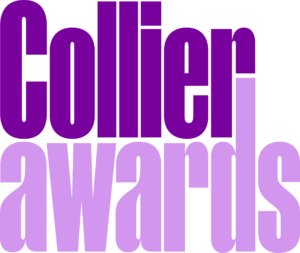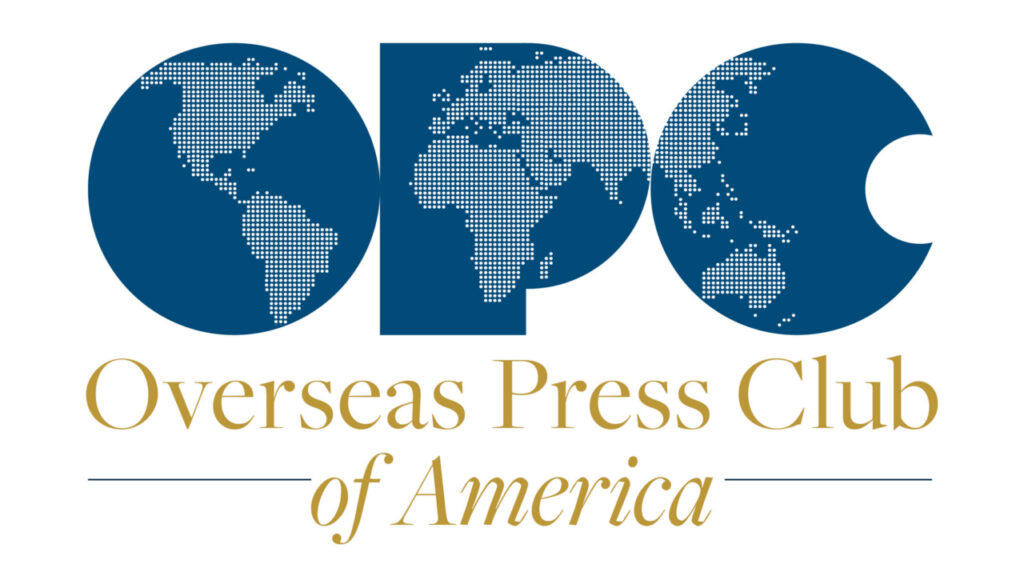January 30, 2025
Overcoming cynicism, Awards Talk: Save the Date & Minimizing Harm, Ethics & Overseas Reporting, Safety X Ethics, Reporting No-Comments
Does It Still Make Sense To Be a Journalist?

This is the question I hear most from students and early-career reporters. It is usually posed something like this: “Journalism jobs are disappearing. Where they do exist, the pay is low. Even if I work ethically, lots of people won’t trust my reporting—and some may threaten my well-being, online and even in the real world. I worry all this will get worse in Trump’s second term. Have I made a mistake in committing to be a journalist? Should I switch fields now?”
This is such a painful and difficult question, especially for a journalism professor who has spent his adult life in the news business. I applied for eighty-five reporting jobs out of college and felt so blessed to get just one—which was offered to me over the phone at 7:30am from an editor with whom I’d never interviewed and who did not appear to be sober at the time. I didn’t ask questions, took the job, and got to do something I’ve loved and believed in for more than forty years.
So my bias is toward building your skills and developing your career. I can’t say much that’s new or encouraging about news industry finances, although some promising efforts are afoot here and there. But journalism work, however scarce, does exist, whether at mainstream news organizations, local not-for-profits, niche micro-sites, local TV stations, or in emerging roles such as podcast production. Persistence can pay off if you want it enough. My former teaching assistant at Columbia Journalism School applied for sixty-six jobs and fellowships over a two-year period and finally got the position she wanted last fall. She loves reporting and simply refused to give up.
But what about our maligned profession itself? Trust in the media is exceptionally low—twice as low as it was in the 1970s. The recent election seems to show that earnest, deeply reported press coverage, however fact-filled, may have little or no effect on voters—at least compared with whatever nonsense appears on social media. News organizations don’t always help themselves: a credible case can be made that even the strongest outlets missed or misreported some of the most important stories of the 2024 campaign.
The only real antidote to being perpetually despondent about all this is to do responsible, consequential journalism, generate as much trust as possible in the integrity of your own work, and stay abreast of ways you can protect yourself legally, physically, and on social media.
What I always come back to is the impact that accountability journalism continues to have—even as many people insist it doesn’t matter what the mainstream media reports. When you uncover harms caused by—among many examples—a blood-testing company, a baby-powder maker, a powerful city council, a military-housing supplier, a massive online retailer, or a Hollywood mogul, good things can happen. Not always, but often. We remain essential watchdogs over powerful interests in society, and—when we work ethically, accurately, and fearlessly—we can improve people’s lives, even as we are sometimes derided for doing so.
Plus, we write the first draft of history. It’s our duty to get that right, or as right as we possibly can, so that future generations can understand what really happened in our times.
So, yes, I’d say to students and practicing journalists alike: stick with it.
You’re invited! Join us in celebrating the inaugural winners of the Peter F. Collier Awards for Ethics in Journalism with fellow journalists, media commentators, and educators from around the country. The ceremony will take place on Thursday, April 10, 2025 from 5-9pm at Paley Center for Media in Manhattan. The event is free; registration details to come.
Then, on Friday, April 11, we’ll dive into the issues with a day of curated panels featuring judges and finalists from our student, local, and national categories. The symposium will place representatives from different outlets and categories in conversation, highlighting specific ethical challenges they encountered in their reporting.
Watch for the announcement next month of our nine finalists and our keynote speaker.
We asked Collier Awards judges and Ethics & Journalism Initiative team members to break down the seven core ethical issue areas entrants can address in their submissions. This week, Alison Frankel, longtime legal columnist at Reuters, discusses the use of anonymity in this cycle’s submissions and how we can balance our obligation to sources with our ethical imperative to tell the full story.
Thirty-six years ago, in a memorable New Yorker essay called ”The Journalist and the Murderer,” author Janet Malcolm described journalism as “morally indefensible,” likening a reporter to “a confidence man, preying on people’s vanity, ignorance or loneliness, gaining their trust and betraying them without remorse.”
In the years since, spurred at least in part by Malcolm’s widely discussed indictment of media practices, many reporters have rethought their relationships with sources. Unlike Malcolm’s archetype of the exploitative journalist, entrants in the inaugural Collier Award for Ethics in Journalism hewed to strict processes aimed at protecting the privacy, dignity and, in some instances, identity of their sources…
Read the full story and our other Collier Award issue spotlights
When we hear “journalist safety,” we typically envision personal protective equipment (PPE) like riot gear, bulletproof vests, and other paraphernalia necessary for reporting in wars or conflict zones.
However, the majority of cases that Kerry Paterson responds to as Director of Global Safety, Risk, and Resilience at the Associated Press, involve “atypical hostile environments” — everything from local political protests to environmental reporting. “There’s often a very narrow idea of what security encompasses, while it can actually be a whole host of things,” she explained during a “Lunch & Learn” at NYU last month. In a time when beats from climate to education to housing can carry significant physical, digital, and psychological risks for reporters, comprehensive safety training is more important than ever.

At the Ethics and Journalism Initiative, we see a strong link between safety and ethical and thoughtful decision-making in the field. Here are our key takeaways from Paterson’s visit to 20 Cooper Square:
-
The “Three-Legged Stool”: For Paterson, safety can be broken down into three main categories: physical, digital, and psychological. A dangerous situation often implicates all three. Newsrooms should consider the integrated nature of threats and coordinate their responses accordingly, paying particular attention to mental resilience. “If you’re experiencing acute trauma, acute stress, and you are in a state of hyper-vigilance, you may be making less smart or less informed safety decisions in the moment,” Paterson explained to attendees. “Psychological safety allows people to make decisions on the fly.”
-
98% of security happens before you go anywhere or do anything: Preparedness is key. Start big by broadly considering What could go wrong? Then narrow in on assignment-specific details. Map out the location where you’ll be reporting, identifying everything from medical care facilities to public transportation routes. Ensure multiple secure modes of communication and establish a plan with your manager for raising the alarm, if necessary.
-
“Your Identity is part of your risk profile”: All reporters have different risk profiles, based on factors such as nationality, professional background, and appearance. While some safety measures are broadly applicable, others must be tailored to reporters’ specific needs. Don’t make assumptions. An identity that might put a reporter at risk in one scenario might offer them greater safety in another. Be prepared to adapt and consider how your experience may differ from that of your reporting partner or direct report.
-
Identifying yourself as a journalist is a double-edged sword: From an ethical standpoint, journalists should always identify themselves when engaging sources. But broadcasting your professional affiliation can come with significant risks, especially as anti-press sentiment grows. “[Identifying yourself] can be very helpful to establish trust and credibility with people. It can also be a very quick flashpoint if you’re entering an environment that’s hostile to the press,” said Paterson.
-
Position safety as a “support, not a blocker”: Risk is an unavoidable part of journalism. Paterson urged newsroom leaders to position safety as a tool to help journalists get, rather than shy away from, the full story by positioning them to make more informed, ethical real-time decisions.
Join us this March for an in-person panel of foreign correspondents and editors from around the globe, co-sponsored by the Overseas Press Club of America. Panelists will discuss a range of ethical issues from “parachuting in” and working with fixers and local journalists to navigating language and cultural divides.
You see it all the time: A reporter seeks a response on a newsworthy topic, and the source refuses to comment. In a world in which journalists are often viewed as self-righteous and arrogant, reporting a no-comment as a refusal serves only to feed that narrative.
Perhaps the source declined to comment or wouldn’t comment or just said – completely unhelpfully – “I can’t help you with that.” But “refused” to comment? That’s the only description that’s unquestionably wrong, ethically and quite possibly factually.
Read how Initiative Director Stephen J. Adler suggests you respond instead at ethicsandjournalism.org/best-practices.
Last month, we recommended Columbia Journalism School Professor Bill Grueskin’s reporting on Dilan Gohill, a Stanford student journalist facing prosecution for embedding with protesters. We’re still following the story closely. Last week, the San Francisco Chronicle reported that the university had dropped Gohill’s campus disciplinary charges, but the threat of criminal prosecution still looms.
Have thoughts on something you’ve read here today or a journalism ethics topic in the news? We’d like to hear what you have to say and may feature your comments in a coming newsletter. You can drop us an email at ryan.howzell@nyu.edu or reach us on Linkedin, X, and Instagram. Plus, be one of the first to follow our new Bluesky account!


